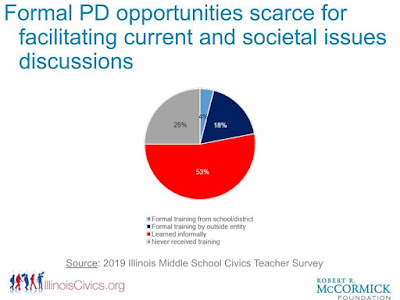Understanding How the Government Works: Federalism
by Mary Ellen Daneels, Civics Instructional Specialist The IllinoisCivics.org Summer Webinar series shifted this week from the proven practices of civic education embedded in both the middle and high school civics course requirements to focus on disciplinary content for direct instruction on democratic institutions, and specifically the concept of federalism . There have been a plethora of current and societal issues related to federalism recently. Essential questions about the division of power between the state and federal governments have taken center stage in deliberations surrounding the government response to COVID-19, access to the ballot and election security, immigration policy, criminal justice and police reform. As Dr. Shawn Healy, Director of the Democracy Program at the Robert R. McCormick Foundation shared, Federalism, like separation of powers, is an ongoing debate, a perpetual balancing act. Debates over federalism can be traced back to before “the room where...




